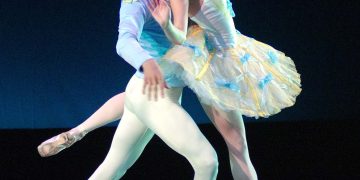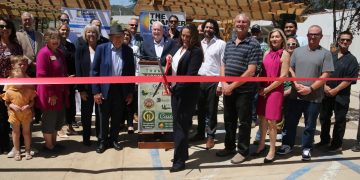
It’s a tale of “treasure” uncovered — and lost — but in the end, satisfaction gained. After finding a one-of-a-kind aluminum penny potentially worth hundreds of thousands of dollars, the finder, Berkshire Hathaway Realtor Randy Lawrence, and Michael McConnell, owner of La Jolla Coin Shop, teamed to verify and capitalize on the find. But after a court battle with the federal government, which also claimed ownership of the 1974-D aluminum one-cent piece, the Realtor and the numismatist settled, ultimately, for donating it back to the United States Mint in Denver, of which Lawrence’s father Harry had been a deputy director until his retirement in 1979. After Lawrence moved to La Jolla from Denver in late 2013, he sold the bag of coins containing the penny, which he inherited from his father, to McConnell. The coin dealer later suspected the penny’s significance and had it inspected and authenticated by the Professional Coin Grading Service. “In numismatic circles, this aluminum one-cent piece is called a discovery coin because it is so rare – in fact, it’s the rarest coin we’ve ever seen at La Jolla Coin Shop,” said McConnell. Lawrence explained that the idea behind the government creating the penny was that, due to the high price of copper, “they were going to make them out of aluminum. And they actually made half a million of them minted out of Philadelphia. But they never put those into circulation.” The Realtor explained that the Denver mint also had plans to follow suit minting aluminum pennies, but also never actually did, except for a couple of test coins that were made, which were supposed to have been given back to the government, but never were. “This is the only coin (of that kind) ever to be found from the Denver mint,” said Lawrence, adding that’s when it turned up in his inherited bag of coins. “I sold it to Michael (McConnell) not knowing it was there,” Lawrence said. When McConnell discovered how rare Lawrence’s penny was, Lawrence noted the coin dealer was “too honest” not to inform him about it, and the two agreed to work together to auction it off. “But then the federal government stepped in and said they wanted the coin back,” Lawrence said, noting that that derailed their plans to auction the coin, with an estimated minimum value of $250,000, and donate up to $100,000 to fight homelessness locally. To make a long story short, McConnell and Lawrence finally agreed to drop their lawsuit with the government over the rare coin and instead reached a settlement with the U.S. Mint that would preserve the coin’s historical significance for public appreciation and display. “We didn’t get any money, but we still feel really good about (donating) it,” said McConnell, adding, “We know it (coin) isn’t a unicorn anymore. It does exist.” The fact that aluminum pennies never were made and circulated “radically changed our coinage today,” said McConnell. “This was a (great) moment in history. In our minds, (donating it back) was the right thing to do.” Though he didn’t profit materially from the rare coin, McConnell noted going through the legal system was a great learning process, which in and of itself had value. Lawrence described the finding of the rare coin and the ensuing legal battle as a “wonderful journey.” Of the end result, Lawrence said, “It’s a feel-good story — without the money. I know my father would be pleased that others will get to see and enjoy this rare piece in the U.S. Mint collection for years to come.” Established in 1964, La Jolla Coin Shop, at 7746 Girard Ave., is one of San Diego’s premier destinations for rare coins, currency and precious metals. For more information, visit lajollacoin.com/.













Discussion about this post